Arturo Sarukhan argues that we must foster, as we have sought to do in the past, an understanding that each society in North America is a stakeholder in the success of the other. And as it happens, he writes, the soccer federations of Canada, Mexico, and the United States recently engineered a potent symbol of our interconnectedness: They presented a joint North American bid to host the 2026 World Cup. This piece originally appeared in the Los Angeles Times.
Mexico and the United States enjoy one of the most important bilateral relationships in the world today, with profound implications for the prosperity, well-being and security of both nations. No country touches the daily lives of more Americans than Mexico, and no country touches the daily lives of more Mexicans than the United States. In the more than two decades since NAFTA’s approval, our two countries have been converging as societies and as economies.
This complex and productive partnership is facing dire challenges as a result of Donald Trump’s demagoguery, nativism and anti-Mexico bashing, both during the campaign and in the first weeks of his administration. Unsurprisingly, a Mitofsky poll published a month ago found that, between January 2016 and February 2017, favorable perceptions of the U.S. in Mexico collapsed from 44 percent to 22 percent and negative perceptions skyrocketed from 11 percent to 41 percent. While a recent Gallup poll found that favorable perceptions of Mexico in the U.S. have actually risen to 64 percent from 59 percent in 2016—most likely as a counter-reaction to Trump’s use of Mexico as an electoral piñata — it will take time and effort to heal these wounds.
Canada, the third North American partner, was never in the crosshairs of the 2016 campaign. But the onslaught against the North American Free Trade Agreement and the general tone of the campaign also hurt U.S. relations with Canada.
We therefore must foster, as we have sought to do in the past, an understanding that each society in North America is a stakeholder in the success of the other. And as it happens, the soccer federations of Canada, Mexico and the U.S. recently engineered a potent symbol of our interconnectedness: They presented a joint North American bid to host the 2026 World Cup.
Many Mexicans, Americans and Canadians may object either to the logistics or desirability of such an endeavor; Mexicans and Canadians may rightly complain that the plan calls for the U.S. to host the lion’s share of the games: 60; while Mexico and Canada would each host just 10 early-stage games.
But a joint World Cup would be immensely practical, and our three nations would come out winners regardless of who wins the tournament. The three North American nations combined boast a huge and enthusiastic fan base. Stadiums already exist in key cities, and would likely only need upgrading, averting the temptation or need for costly new behemoths. Existing air connectivity between Mexico and the U.S., and the U.S. and Canada could be rapidly expanded, and would facilitate tourism in the short and long term. Key infrastructure, airports and border crossings in all three countries could certainly benefit from investment and upgrading, a boon to our economies and to our global competitiveness.
More important, a joint tournament would be a public diplomacy boon for the three countries. It would send a message that the U.S., which has garnered opprobrium around the world thanks to President Trump’s proposed travel ban and the construction of a border wall, is not “Fortress America.” It would also help to highlight, among other assets, Mexico’s millennial history and creative industries as vital sources for economic growth and to underscore Canada’s soft power and its core values regarding immigration and refugee policy.
Bill Shankly, the legendary Liverpool manager of the early 1970s, once deadpanned that while some people thought soccer was a matter of life and death, he knew it was much more important than that. Soccer is never just about soccer. It reflects the cultural and social crosscurrents of the world at a given time.
For Mexico, the U.S. and Canada, a joint bid for the 2026 World Cup would also be about more than just soccer. It would be about shifting mutual perceptions first and foremost, about the three nations becoming better neighbors and about creating a sense of common purpose. It would send a powerful message to our respective peoples—and to the rest of the world—regarding the nature and promise of our ties.
The Brookings Institution is committed to quality, independence, and impact.
We are supported by a diverse array of funders. In line with our values and policies, each Brookings publication represents the sole views of its author(s).

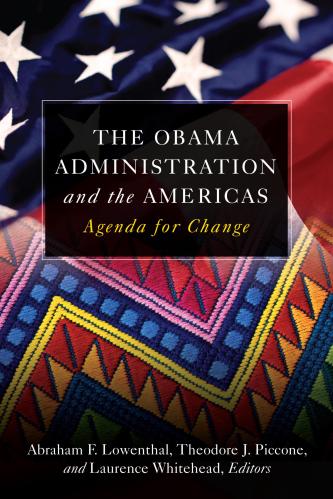
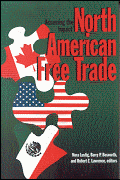
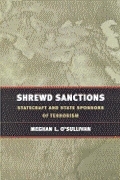
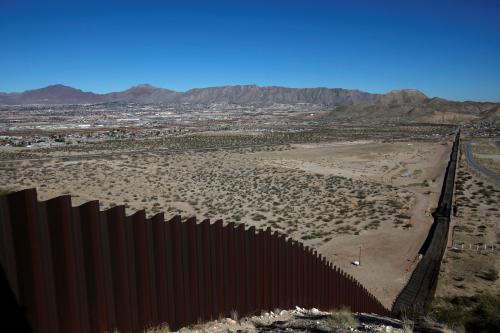
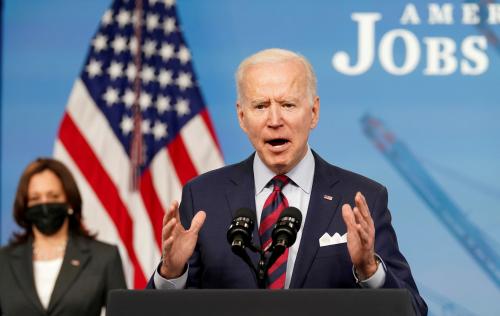
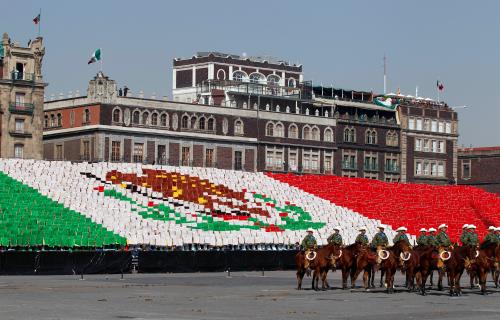



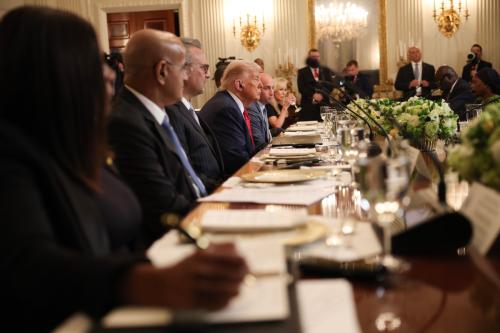
Commentary
A NAFTA World Cup? Just the thing to improve relations
April 19, 2017